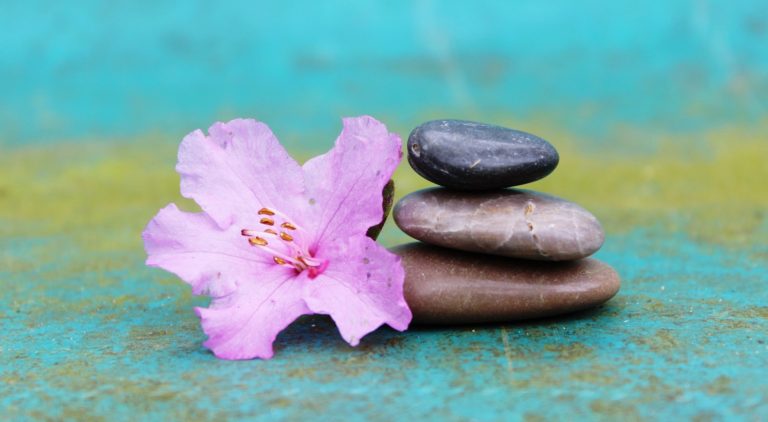Conquer Seasonal Affective Disorder with These Tips!
If you live somewhere that has a cold and/or dark season, there’s a good chance you’ve experienced the infamous “winter blues.”
You know, that depressing feeling of being locked up inside because it is too cold to go outside and it seems like the sun hardly ever shines.
It makes you feel down, lethargic, and moody. You may even want to go into hibernation mode until summer rolls around.
Sometimes this feeling gets worse and before you know it, you find yourself in a deep depression. If that’s where you’re at now, take a deep breath and read on.
Because I totally understand where you’re coming from and I can help you!

I, myself have been struggling with it for years.
But during that time, I have learned important ways to identify the onset of seasonal affective disorder and I’ve found many successful ways to help manage it.
Today I want to share those ideas with you!
But first I want to give a little background information about Seasonal Affective Disorder.
Seasonal Affective Disorder
What is it?
Seasonal Affective Disorder, commonly referred to as, SAD, is something that happens to many people during the change of a season.
It is your mental and emotional response to the change in weather and your environment.

While it is more common in the cold or winter months, SAD can also occur as spring turns into summer.
Here I will be focusing on winter SAD, but it is important to keep in mind that you may encounter SAD at different times in the year.
Having this awareness can help you to identify if and when you are experiencing any symptoms.
The reason why winter is such a common time for people to experience SAD is because, in many areas, those months become rather cold and days become shorter.
This provides fewer opportunities for sunlight and tends to lessen our desire to get outdoors.
Why Do We Need Sunlight?
Sunlight helps the human body do a number of important things.
For one, it regulates our circadian rhythm.
When we aren’t getting enough sunlight, our biological clock struggles to know when it’s time to wake up or time to sleep.
It becomes more difficult to maintain that regular and natural schedule the body needs to thrive.

Melatonin, the hormone that helps you sleep, tends to increase in the absence of sunlight, which can contribute to feeling tired more frequently and further disrupts your circadian rhythm.
Sunlight also aids in the production of serotonin, the chemical in our brains that helps us to feel happy.
When there is a lack of sunlight, the brain may not produce as much serotonin, leaving us feeling more depressed.
These changes caused by a lack of sunlight can leave us feeling sluggish.
Combine that with the colder temperatures and our activity levels take a serious plummet. This decrease in activity can leave us even more depressed and thus begins a vicious cycle.
Guess what, though? You can actually get yourself out of that downward spiral and kick SAD in the butt! And I’m here to help you out 🙂
How to Beat it!
The great news for people like you and me who struggle with SAD is that there are many things out there that can help!
And while medication is definitely an option, and even necessary for some people (talk to your doctor), the list I have for you here doesn’t involve taking any medication.
Yay for healing in more natural ways!

Here are some ideas for you to consider when managing your seasonal affective disorder.
Ways to Manage Seasonal Affective Disorder
Light Therapy
Light therapy is an amazing way to absorb some vitamin D while you’re sitting inside!
There are a variety of lamps–from desk lamps to standing lamps, and even travel lamps–that are all designed to mimic the sun and give off Vitamin D.
These lamps are backed by medical research and are frequently supported by mental healthcare professionals.
Several of my own providers (including my current ones) recommended them to me over the years and I could not agree with them more!
I first experienced light therapy back in 2014 during a brief inpatient visit and I instantly fell in love with it. I couldn’t believe how calming and effective it was!
It took me years to get a lamp of my own, but since I have I’ve noticed a huge difference in my mood!
I am actually sitting with my lamp on right now as I am typing at my desk. Pretty convenient, right?
Once winter hits, I like to start my day by sitting near the lamp so that my body knows it is morning and I can get that vitamin D in right away!
Sitting by one of these lamps for just 15-20 minutes a day can make a huge difference in your mental health!
Vitamin D Supplement
If you haven’t been able to get out into the sun as much as you’d like, try adding a vitamin D supplement to your daily regimen.
Vitamin D is a really important nutrient for our brains because it helps regulate chemical balances and wards off depression and anxiety.
Vitamin D helps raise serotonin levels and reduces levels of melatonin.

You can actually pick up a vitamin D supplement from your local drug store to help your body get more of that great brain food!
I take a supplement every morning along with my regular vitamins.
I really like the one I have because it is a tablet that dissolves under the tongue instead of another disgusting pill I have to swallow.
And, being something that I don’t dread, I’ve been able to build it into my morning routine that much easier!
So however you gotta do it, make sure you’re getting that vitamin D!
Practice Awareness and Acknowledgement
It is really important to be in tune with your mental health and pay attention to when it may need a little extra support.
Combating seasonal affective disorder is much easier when you are aware of the onset.
Once you learn to identify when your mood seems to take a dip according to the time of year, you can prepare for that challenge ahead of time.

As winter approaches, I know that my mood tends to decline because I am not as active and I am not getting nearly as much sunlight as I should be getting. This is true for many people!
For years I wondered why I would get so depressed until I took the time to explore the connection between the seasons and my mental state.
I realized that it was because my body and brain were not getting what they needed to be healthy.
Now, every time that a season is coming around where I know I will be affected, I take measures to prepare ahead of time, and then things aren’t so bad.
Journaling is a great way to start exploring the correlation that may exist between your mental health and your environment.
Keep track of your feelings and mental health during your down months to help you better understand yourself.
Get Some Exercise!
Even if you cannot go outdoors, get up and give your body some much-needed motion. Exercising on a regular basis can improve your overall mood and supports a continuously healthy mind!
Find a home workout you like, get a gym membership, or have a dance party by yourself any time you are feeling lethargic. The point is to get yourself moving!
It’s a really good idea to strive to do something active every single day, even if it is only for 15-20 minutes. Both your mind and body will thank you!

You can also try adding in tidbits of movement throughout the day to help create an overall active lifestyle, even when you’re confined to the house.
I actually love my Fitbit for helping with this sort of thing! I receive movement reminders every hour so I get myself up and get that blood circulating.
It also makes it easy to set daily step goals and stair goals.
Don’t have a smartwatch or never count your steps? No problem! You can still find lots of ways to motivate yourself to be active.
Make it a point to get up every hour and do something. A few jumping jacks, jogging in place, or just walking around aimlessly can help you start to make a difference!
Get Outside, Even if it’s Cold
Being outside and in nature is so freaking good for your mental health!
Even on those cold, dark days, it is important to try to get outside and spend at least a few minutes connecting with mother earth.
Look around you and acknowledge the trees, grass, leaves, water, snow, or whatever is nearby.
Even if you are just in your front yard or on the street, find a tree or plant next to you and focus on that. Observe it and notice its beautiful qualities.
Being in tune with nature helps you ground your mind and feel calmer.
While it can be beneficial to enjoy nature simply by looking through your window, there is something to be said about actually immersing yourself in the natural environment around you.

Breathe in the fresh air. Forget about the rest of the world for a minute and become one with whatever nature is around you.
Recognize the natural beauty of this world and embrace it for all that it is.
Even if you only take a couple of minutes, I strongly encourage you to find time to get outside and enjoy nature each and every day. It will help you to feel better no matter the weather!
Take Extra Time for Self-Care
Self-care is totally underrated in our society when the truth is, everyone needs time for self-care! It is actually a really important part of living a healthy lifestyle.
When you’re struggling with SAD, self-care becomes even more important and you may find that you need more time to yourself to feel good. There is absolutely nothing wrong with that!
Plan some additional time in your daily schedule to do things that make you feel restored and energized.
Make yourself a special warm drink and sip it while reading a book that you’ve been wanting to explore.
Take a warm bath with some special bubbles or salts and really take time to soothe your senses. Sit with your journal in a cozy place and reflect on some positive things in life.

Whatever it is that will make you feel that you’ve taken the time you needed for yourself, do it! And be happy about it, allow yourself this extra time.
It is something that you need in order to feel whole and in order to help and support those around you. It is both good and necessary to take time to care for yourself and your mental health!
And it is never selfish to do so because aside from taking care of yourself, it truly does benefit everyone you interact with, especially those you are closest to.
* * *
Staying positive during those difficult seasons can really be a challenge. Be prepared for your next bout of seasonal affective disorder and take control of your emotions ahead of time!
Get some extra vitamin D, stay active, acknowledge and track your feelings, and take some extra time for self-care!
You deserve to be happy, and you have the power to control your mental health. Take action today and conquer your seasonal affective disorder!
How do you beat seasonal affective disorder and stay ahead of the winter blues? Share your ideas with me in the comments below!
How to add more activity to your day, even when you don’t have the time.




![7 Elements of My [Mental Health] Care Plan that I Can’t Live Without](https://flowerchildpsyche.com/wp-content/uploads/2021/03/coffee-2319266_1920-768x512.jpg)


Great advice! What kind of light would you recommend me to purchase?
Great question! I got my light right off of Amazon…here is the link for the one I have: https://www.amazon.com/gp/product/B08D98XZDR/ref=ox_sc_act_title_1?smid=A2FZS4IK8QWYW2&psc=1
Circadian Optics, Verilux, and Carex also offer some amazing options 🙂